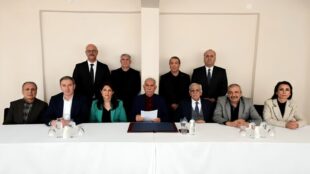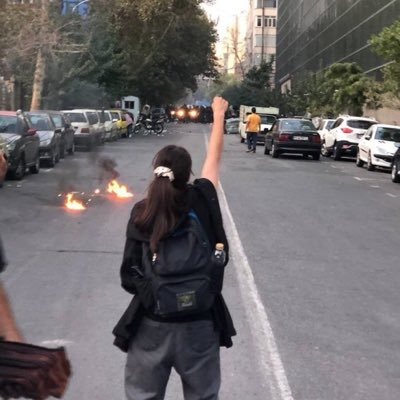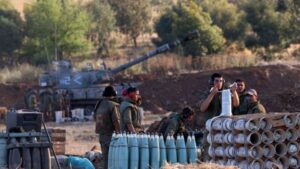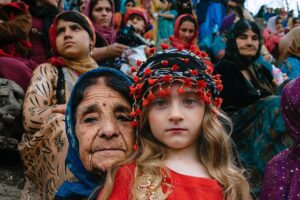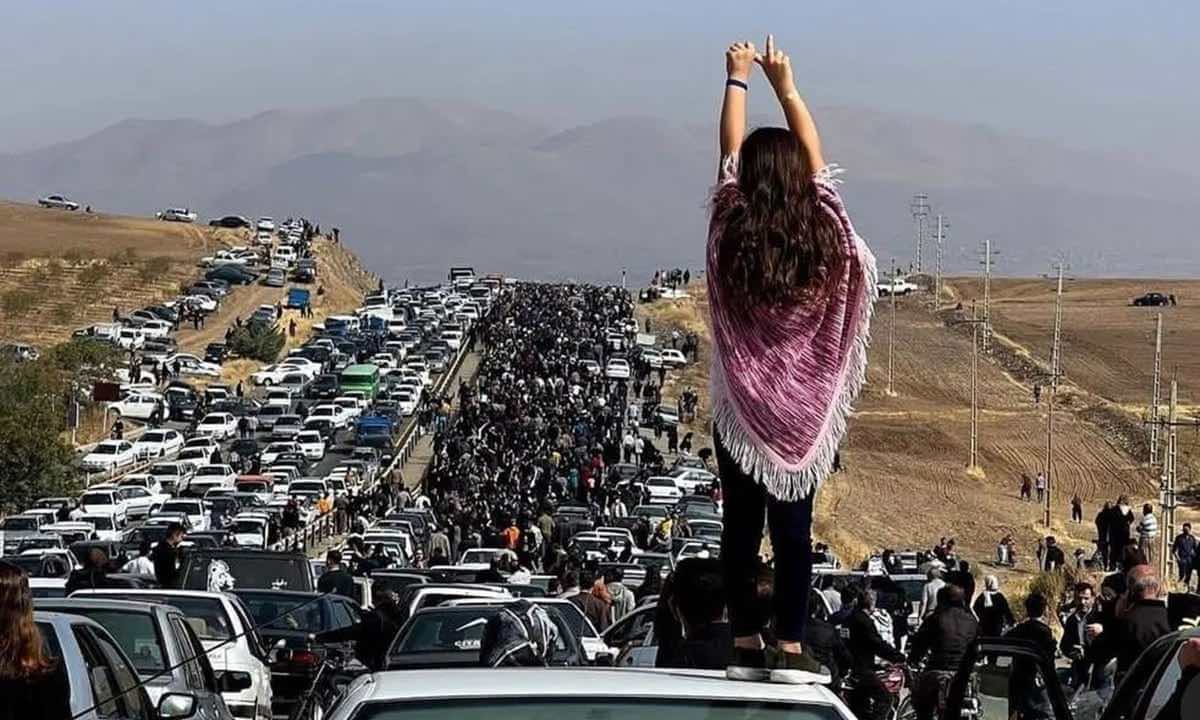
Kawe Fatehi
In September 2022, the feminist revolution in Iran was ignited by the tragic murder of Jina Amini, a Kurdish woman, at the hands of the Islamic Republic’s morality police. This movement, encapsulated by the powerful slogan “Jin, Jiyan, Azadi” (“Woman, Life, Freedom”), is resolutely challenging a complex web of oppressions encompassing gender apartheid, patriarchy, military dictatorship, neoliberalism, nationalism, and Islamist theocracy that has gripped Iran for 44 years.
In the initial three months of this uprising, over 18,000 activists and protesters were detained, thousands were injured, and more than 500 individuals lost their lives, including 70 children. Many still face the imminent threat of execution, while prisoners endure harrowing conditions, including show trials, torture, and appalling threats of rape and sexual harassment, with a particular focus on women and queer individuals. Shockingly, the regime has even resorted to chemical gas attacks in more than 200 schools, leading to casualties, including female students and children.
Despite facing these formidable challenges and brutal repression, the indomitable spirit of the feminist movement persists. It is crucial to underscore that the Islamic Republic has crossed a threshold from which there is no turning back, and the courageous women spearheading this revolution are unwavering in their determination to topple the regime. While street protests have temporarily subsided, activists are utilizing this respite to regroup, recuperate, and strategize for the road ahead.
The origins and significance of the slogan “Jin, Jiyan, Azadi” merit a closer look in the context of this feminist uprising in Iran. This rallying cry emerged following the tragic murder of Jina Amini and rapidly gained traction throughout the nation. However, its roots extend back to the Kurdish women’s movement in Bakur, the Kurdish region in Turkey, with a particular influence from Abdullah Öcalan, the leader of Kurdistan’s Workers’ Party (PKK). Öcalan’s ideological evolution towards democracy, gender equality, and ecological activism, alongside the interconnectedness of women’s liberation with the broader struggle for Kurdish autonomy, played a pivotal role.
Öcalan’s visionary approach intertwined ancient myths and the concept of matriarchy, challenging the prevailing notion of patriarchy as an immutable and natural order. The slogan “Jin, Jiyan, Azadi” emerged in the 1990s, signifying the inseparable connection between women and life, with “freedom” representing emancipation from oppressive power structures, including capitalism, the state, and patriarchy. This slogan gained prominence in Rojava, the northeastern region of Syria, and Bakur, gradually spreading across Kurdistan and beyond.
Crucially, the article underscores that the “Jin, Jiyan, Azadi” slogan doesn’t solely belong to the leadership of the PKK; it is the result of collective efforts by Kurdish women within the movement. These women, be they guerrillas or civil activists, played a pivotal role in making this slogan the linchpin of the movement. They waged a dual struggle against the nationalist patriarchy imposed by the Turkish state and patriarchy within the party itself. Their conscious political actions and intersectional approach to fighting power structures contributed significantly to the widespread popularity of the slogan, transcending geographical borders.
In Bakur and Rojava, activists advocating against violence towards women took concrete actions such as establishing institutions, organizing protests, and conducting grassroots outreach to engage women from all strata of society in the fight for gender equality. This approach aimed to make women’s issues relevant to all segments of society and challenged elitist forms of feminism.
Furthermore, the tradition of politicizing death and martyrdom, epitomized by the chant “Jin, Jiyan, Azadi,” had been ingrained in the culture of Bakur and Rojava for years, serving as a profound source of inspiration for Kurds in Iran.
The article also underscores the pivotal role of mothers seeking justice in disseminating the slogan. These mothers, who had endured the loss of loved ones due to oppression, transformed their daily lives into acts of political resistance, reshaping public spaces through their protests, ululation, expressions of joy, and collective Kurdish dances.
Internationally, the slogan gained prominence through the Rojava Women’s Revolution and in response to the assassinations of PKK members in Paris in 2013. The YPJ (Women’s Protection Units) adopted the slogan at the burials of women martyrs, symbolizing the struggle for a society centered on women and their resistance against violence.
Ultimately, the “Jin, Jiyan, Azadi” slogan represents over four decades of unyielding struggle against authoritarianism, capitalism, colonialism, and diverse forms of oppression. Its impact transcends national boundaries, serving as a beacon of inspiration for leftist activists and women globally who have confronted similar challenges.
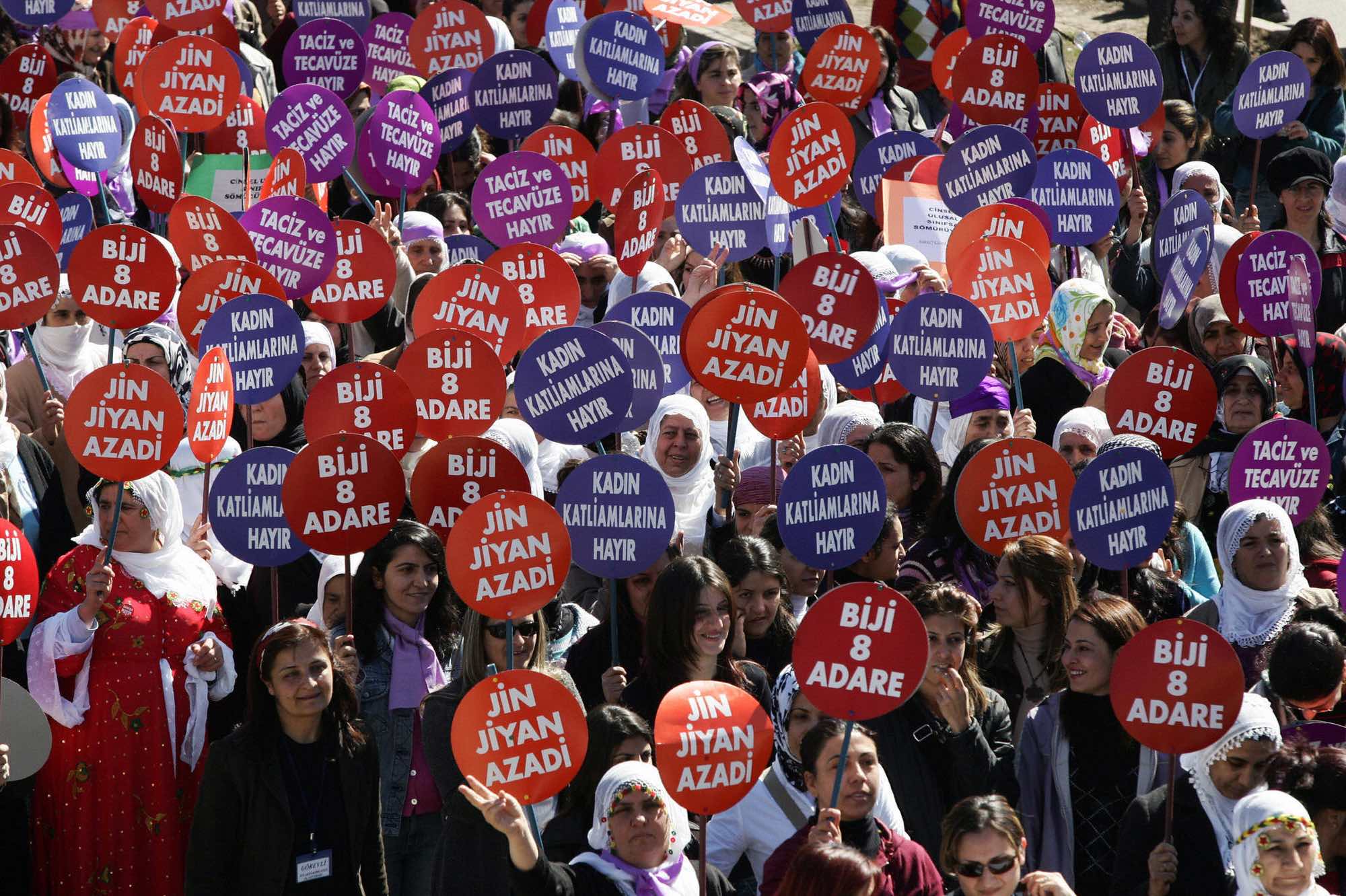
In 2020, Catalan and Spanish women who visited Rojava even published a book titled “Mujer, Vida, Libertad” (Jin, Jiyan, Azadi), further underscoring its far-reaching global influence.
The article illuminates how the “Jin, Jiyan, Azadi” slogan has assumed diverse meanings and adaptations across different geographical and political landscapes. In France, during the March 8 protests, some feminists modified the slogan to “Women, Struggle, Freedom” to foster inclusivity and deter essentialist interpretations.
It is essential to highlight the feminist origins of this slogan within the PKK, a dimension often overlooked. Kurdish women within the PKK have played a pivotal role in shaping and popularizing the slogan. Their struggles against patriarchy, both within the party and in society at large, serve as a wellspring of inspiration not only for women’s movements in Kurdistan but also for those worldwide.
Acknowledging the feminist roots of the slogan helps counter attempts by right-wing forces to appropriate it and underscores the distinct experiences of men and women within the PKK. This aspect is often downplayed by the party’s rivals in Iran and Kurdistan, especially within masculine-dominated institutions and parties focused on political competition rather than the pursuit of women’s liberation.
The article draws compelling parallels between the authoritarian structures in Turkey and Iran, underscoring the shared struggles of Kurdish people in both regions. The ascent of conservative parties and endeavors to impose Islamic doctrines on gender-related issues have further aligned the struggles in Turkey and Iran.
The diffusion of the “Women, Life, Freedom” slogan is portrayed as a result of cross-border inspiration and enduring political traditions in Rojhilat, the Kurdish region in Iran. The article traces the historical trajectory of Kurdish political movements and their resistance against oppression and exploitation, emphasizing the enduring radicalism passed down through generations.
Moreover, the article pays homage to the enduring tradition of resistance in Iranian Kurdistan (Rojhilat), from the Republic of Kurdistan in Mahabad in 1946 to the 1979 Revolution and the protracted battles against compulsory hijab and other forms of oppression. It underscores the pivotal role of March 8th as a focal point for women’s activism in Iranian Kurdistan.
Lastly, the article delves into the formation of women’s organizations and the active participation of Kurdish women in political movements, including instances where they took up arms. This rich history of activism against gender, ethnic, and class inequalities serves as a vital precursor to the feminist struggles witnessed today.
In the grander scheme, the article highlights the significant journey undertaken by women and ethnic minorities to reshape societal perceptions regarding gender and ethnic oppression. It accentuates that these forms of oppression are not isolated concerns but intricately interwoven with broader societal issues.
This column is a summary of the following article: https://crimethinc.com/2023/03/08/jin-jiyan-azadi-woman-life-freedom-the-genealogy-of-a-slogan
